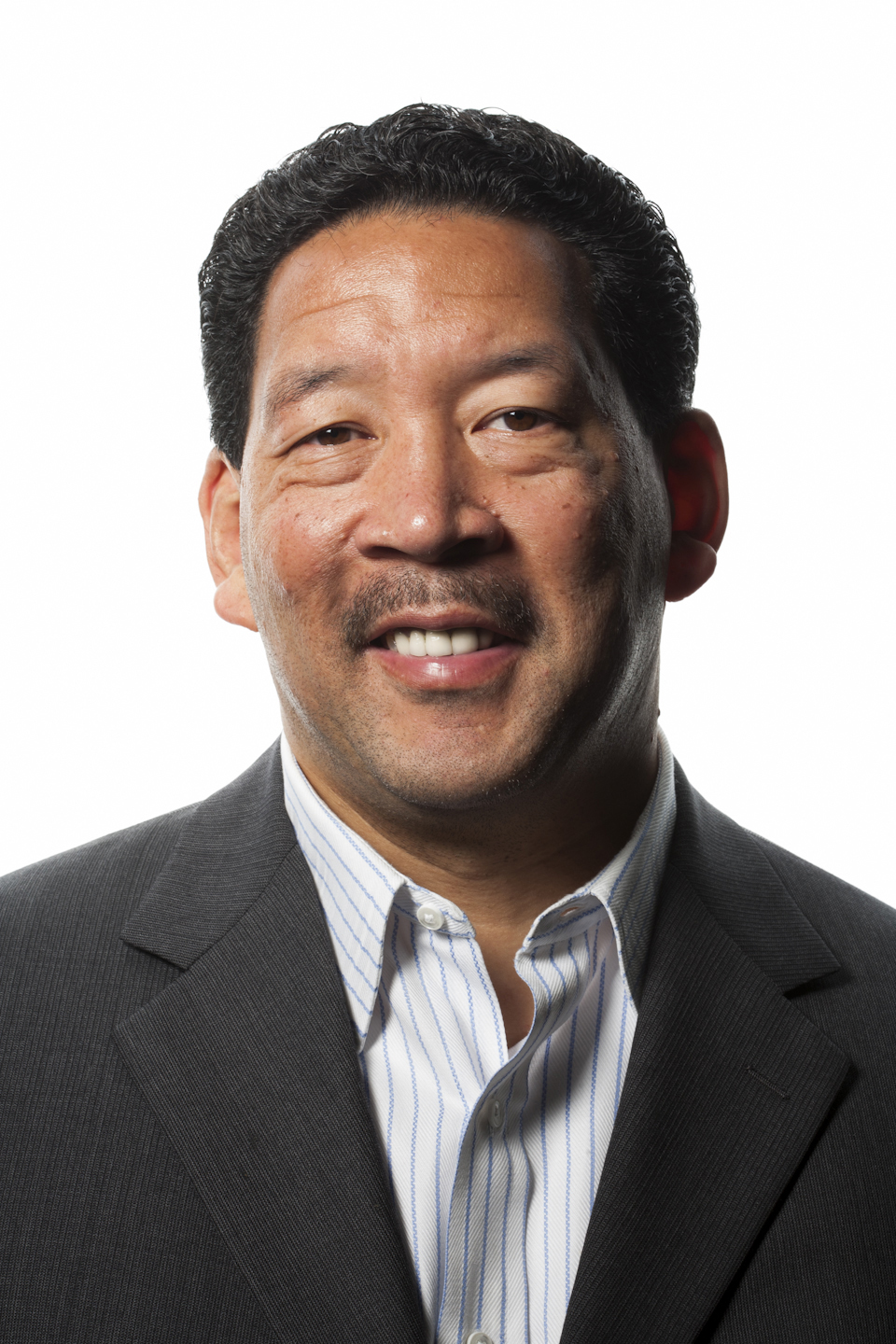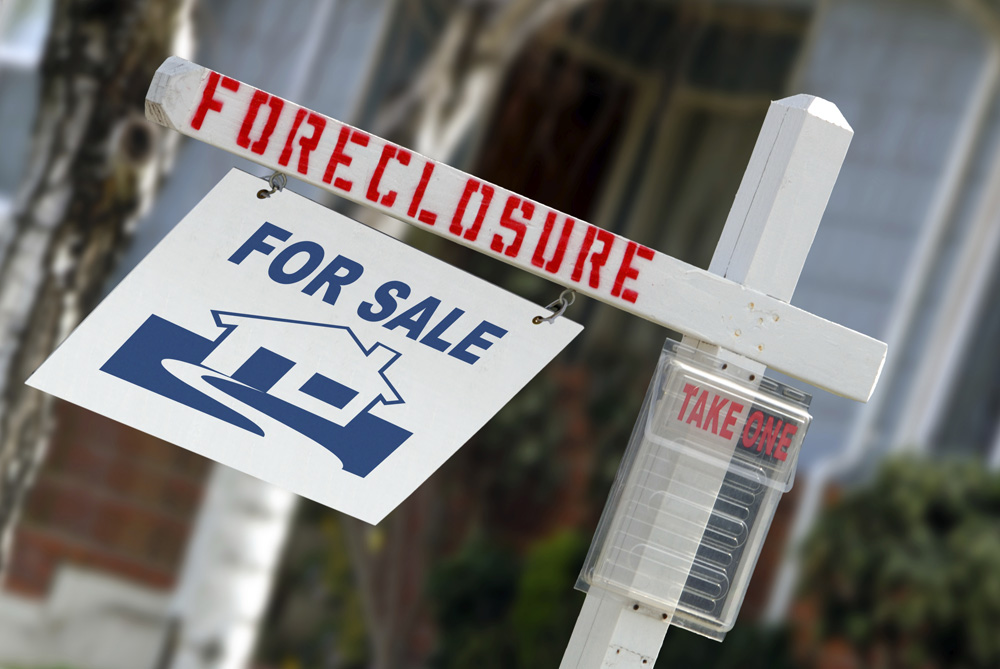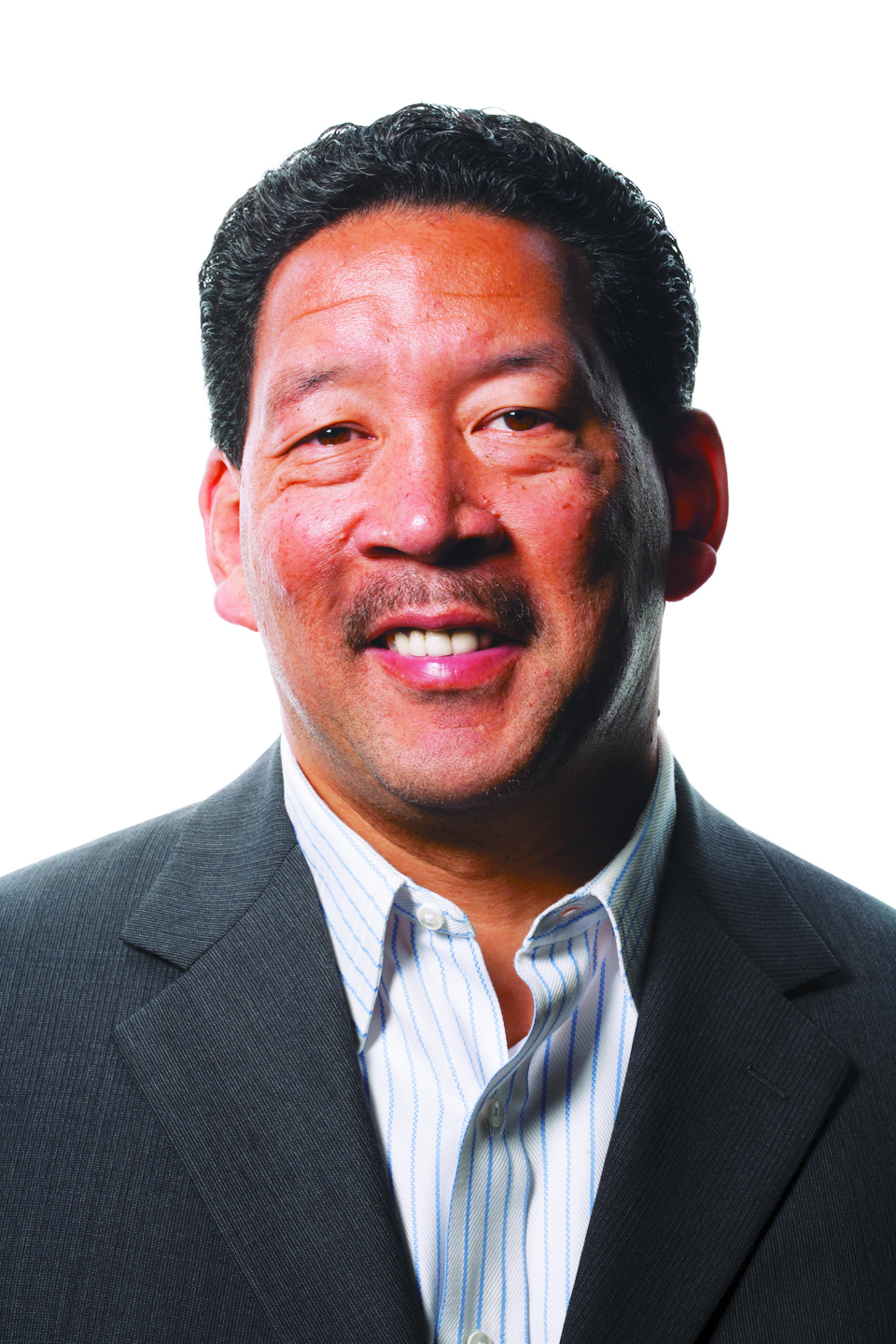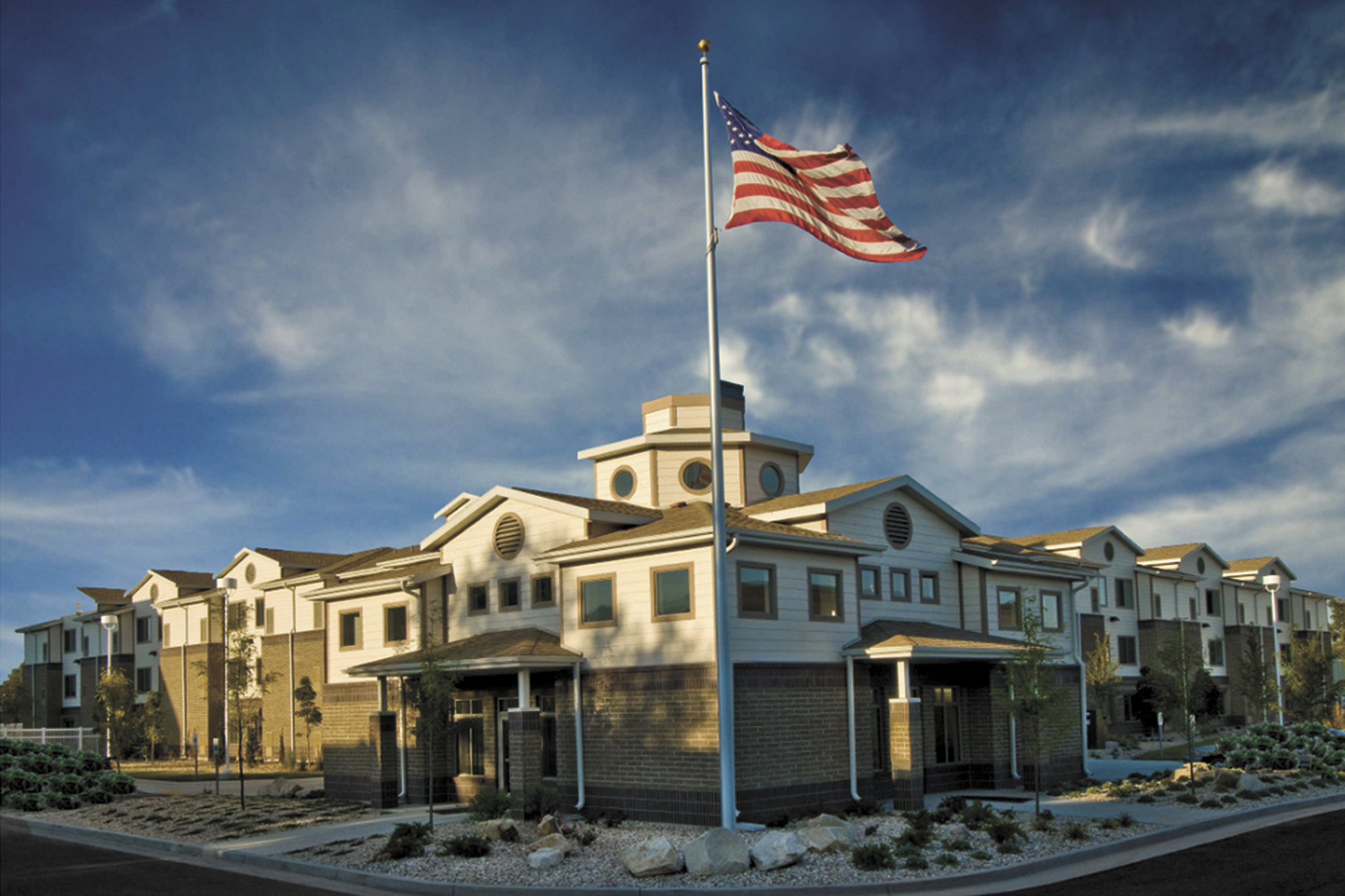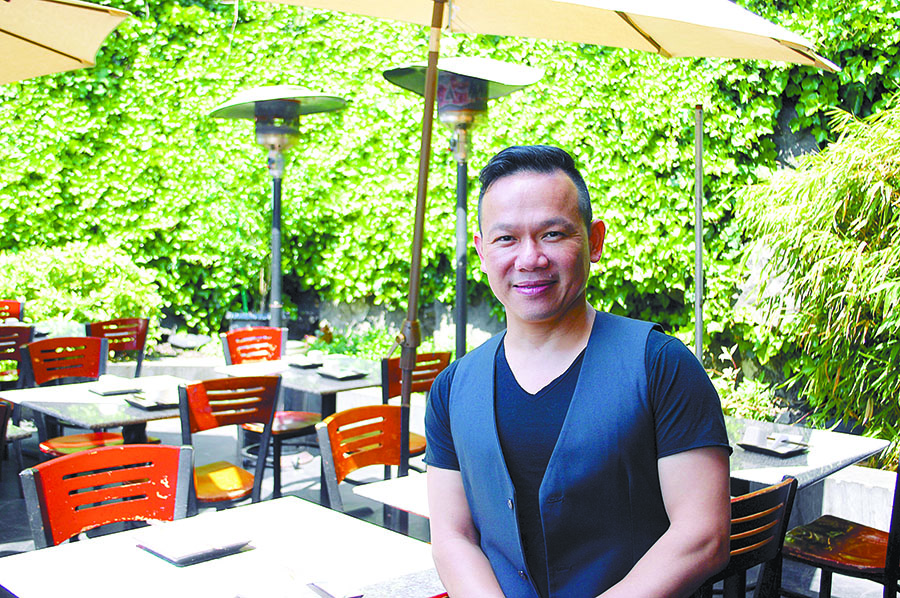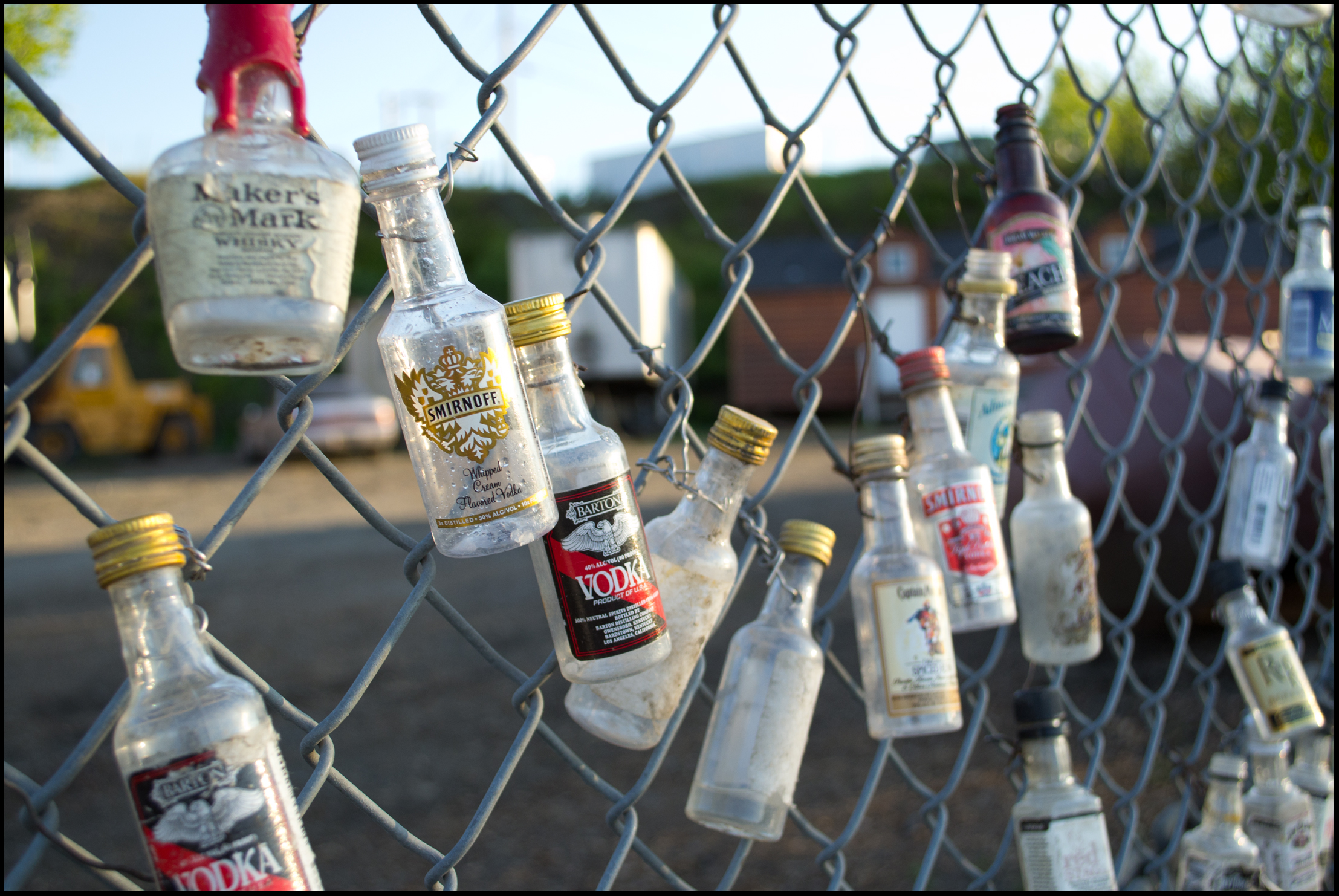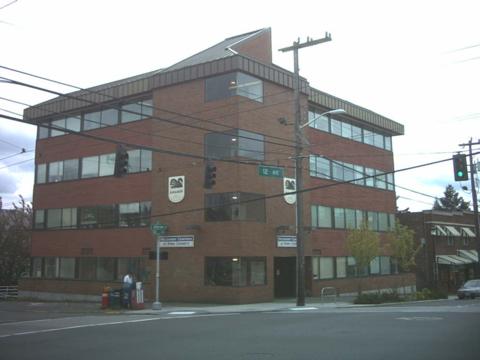If you’re looking for a mayor who can quote every line from The Godfather—and who isn’t?—Bruce Harrell is your man. He revels in reciting movie lines. Get him going, and he’ll go on until the cows come home. One snippet of dialogue currently stuck in his head is from Gladiator, starring Russell Crowe. Rising last week from a conference-room table at his Central District campaign headquarters, Harrell gives it his best dramatic interpretation: “What we do in life echoes in eternity.”
Harrell is banking hard that what he’s done in his 54 years will make him a (ballot-) box-office hit come primary day on August 6. Without question, the man has a compelling life story. The only member of a racial minority in the race, Harrell is the son of a Japanese-American mother and African-American father. He grew up in the Central District just three blocks from his campaign office at 23rd and Union, a product of tough streets.
“I have more street cred than any of these guys running. I’m not some sleeper candidate. I’ve been out doing this, working for this community for 30 years,” says Harrell. “I can go the Monroe Reformatory and literally see scores of people I grew up with.”
Garfield High School’s class of ’76 valedictorian, Harrell was accepted to Harvard and Stanford, but chose the University of Washington, where he’d become an All-American linebacker. Fast and aggressive, Harrell led the Huskies to a Rose Bowl win over Michigan in his sophomore year. NFL scouts lined up to talk to him, but Harrell surprised everyone—including his parents—when he declined their offers in favor of the UW School of Law.
He married Joanne Harrell, a member of the board of regents for the University of Washington, and became a high-powered corporate lawyer for US West before opening a private practice. Now, in his second term as a Seattle city councilman—the lone councilman in the race, following Tim Burgess’ hasty retreat earlier this month—Harrell believes he’s ready and uniquely qualified to lead the city.
“We need someone who can talk to Steve Ballmer and Bill Gates, as I have done, and also be able to talk to the people you see walking by my headquarters,” Harrell says. “I’ll be very honest with you, I don’t think anyone in this race will work harder than me. No one has the energy for this like I do. I can guarantee you that.”
Harrell, who lives with his family in Seward Park—his daughter is a 6´1˝ point guard at Cleveland High—is an eloquent public speaker, thoughtful and often passionate, particularly when the subject involves matters of social justice. He’s performed well at candidate forums. Through April, he’s raised about $115,000, much of it trickling in, slow but steady, in small denominations. Most observers believe his base of support will come from the minority community (Seattle’s nonwhite population is slightly more than 30 percent), though Harrell can’t be pigeonholed. He has labor support, and, having worked as a business and telecommunications attorney, is getting his share of support from the business community.
Don’t expect Harrell to toe the pro-bus, pro-bike, pro-light rail line. “I care as much as about people being able to park as I do about bike trails,” he says. Harrell believes there’s a backlash to high-density development, a wave ex-councilman Peter Steinbrueck hopes to ride, “but we do need to increase our inventory—but it’s about design and review, it’s about making these buildings and surroundings attractive.”
The most recent poll shows him in fourth place with 12 percent support, but the leader of the pack, Mayor Mike McGinn, is sitting at just 22 percent after nearly four years in office—just ahead of Steinbrueck and state senator Ed Murray, at 17 percent and 15 percent respectively—while nearly a quarter of the electorate remains undecided, and unlikely to break in favor of an incumbent.
“What we can take away from the polls is that McGinn will not win. He has lost the trust of the people. He did it with the tunnel, with calling for the takeover of the schools if things didn’t improve, and then with his squabbling with the city attorney over the police issue, and so on,” says Harrell.
McGinn, he adds, is a man of small, inconsequential ideas. “He’s playing it safe now. All of his initiatives are warm and fuzzy, and have absolutely no substance to them.”
Asked what this election is most about, Harrell, who ticks off Tip O’Neill, Thurgood Marshall, and John Kennedy as his political heroes, pauses and reflects, “There is an economic divide in this city. We are a fragmented city, and if we can’t figure it out in progressive Seattle, how is the country going to figure it out?” Harrell goes on, “There are pockets of poverty and despair, while the other side of the city is going quite well. They’re making sure their kids are extremely educated. We need to build one Seattle.”
Harrell’s played a major role in a successful effort to provide 20,000 public-school students, many of them poor, with inexpensive access to computers and the Internet. As mayor, he says he’ll raise $20 million in endowment money to expand the “13th Year” program so that all graduates of Seattle public schools—not just students from Cleveland and Chief Sealth high schools—will receive, if they choose to, financial aid to attend South Seattle Community College. He’s also pushing to overhaul the way the city uses its 25 community centers, saying their mission is outdated and should be far more involved in educational mentoring instead of installing basketball courts and ping-pong tables.
Harrell has also gained favorable attention for his public-safety initiatives, which include getting more community police officers on the streets and his call for mandatory use of body cameras on all Seattle cops. “That is the answer to police accountability,” he says, “and I’m the only one pushing for it.”
As for his path to victory, Harrell says, “Getting my story disseminated, that’s key for me, and continuing to build on the hundreds of volunteers I have.” And finally, “making sure the debates are well publicized.”
Those close to the Harrell campaign say Murray is their most formidable opponent, privately complaining that the state lawmaker seldom misses a chance to take credit for the passage of Referendum 74, which legalized same-sex marriage. “We’re far ahead of most of the country on this issue. This would have happened with or without Ed Murray,” said one major donor.
Over the past couple of years, Harrell has lost a close cousin and a brother, whose daughter Monisha Harrell, a gay-rights activist, serves as his campaign manager. Harrell says their deaths have changed his outlook on life. “What it’s done is give me a sense of urgency. I don’t want to be a good mayor. I want to be a great mayor.”
The Dark Side of Foreclosures
The housing crisis may be officially over, but foreclosures continue. Two new reports make this clear, and highlight an aspect of the foreclosure wave not much discussed: Minorities have been hit especially hard.
The Rev. Lawrence Willis, president of United Black Clergy, says foreclosure is “one of the main issues” his congregation has had to deal with in recent years. To explore the trend, UBC joined the Washington Community Action Network and the Seattle King County NAACP to conduct a zip code-by-zip code analysis of foreclosures in King County.
Sure enough, the findings reveal a preponderance of foreclosures in the 98118 zone, which encompasses a broad swath of South Seattle, including Rainier Valley—“an area where black folks live,” says NAACP vice-president Gerald Hankerson. According to the report, that zip code was the site of 1,179 foreclosures between 2008 and 2012.
In Tukwila and Des Moines, the 98168 and 98198 zones each saw even more foreclosures than Rainier Valley: 1,360 and 1,377, respectively, over the same time period. Both locales have a large number of minority residents, points out Washington CAN! spokesperson Rachel DeCruz.
Those south King County cities also have high levels of poverty, a point underlined by a Brookings Institute book released earlier this month, which examines the changing demographics of suburbs.
Washington CAN!, along with the NAACP and the Alliance for a Just Society, released a second report this month entitled “Wasted Wealth: The Foreclosure Epidemic, a Generational Crisis for Communities of Color.” Looking specifically at 2012 foreclosure data, that report found that in Seattle-area communities dominated by minorities, the rate of foreclosure was 11 per 1,000 households—more than twice the rate of predominantly white communities.
Of course, the housing crisis has not exactly spared whites, as the reports reveal in their discussions of homes that are “underwater” —i.e., worth less than the mortgage on them. One zip code with a high number of such homes is 98103, covering Fremont and Phinney Ridge, neither known for their racial diversity.
One third of Seattle homeowners are still underwater, according to an early-May report. Which gets to another point its authors are trying to make. Says DeCruz: “It’s not getting better.” nina shapiro
E
news@seattleweekly.com
